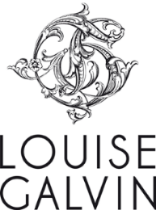Our hair is a beautiful barometer for general health and wellness, showing us when we are depleted in nutrients like Iron or if we are unwell, tired or stressed.
The causes of hair loss in women can be varied and complex: genetics; nutritional deficiencies; stress (both internal and environmental) and hormonal fluctuations can individually or all be at play. With the approach to the menopause typically beginning at 40, hormonal fluctuations may be implicated. Proper thyroid function is also crucial for the hair growth cycle. Stress and nutritional deficiencies should also be addressed.
According to MY Nutritionist Jackie Mc Cusker* “The role of Iron deficiency in hair loss cannot be underestimated and it is important to have a serum ferritin blood test to assess whether non anaemic - iron deficiency is present and if so, corrected”. She continues “whilst Haemoglobin levels are routinely tested for anaemia, Serum Ferritin is a measure of the body’s iron stores and is not routinely measured in a full blood count”. This has particular importance for hair loss as “research has shown that a serum ferritin level of 70 ug/L is recommended for optimal hair growth” (1). In addition, the amino acid L-lysine is required for proper uptake of Iron uptake and vitamin C enhances increases it’s absorption. Jackie ADVISES “its important to remember that should your iron stores be depleted, it may take a minimum of 3-6 months of iron supplementation to bring the Serum Ferritin levels up to this trigger point”.
ON A DAY TO DAY BASIS IT'S IMPORTANT TO REMEMBER THAT...
Iron absorption is greatly enhanced when taken with Vitamin C and supported by a diet rich in Vitamin C and B group vitamins. Proteins are very important, especially those rich in the amino acid, L-lysine, such as turkey, chicken, legumes including soybeans. Foods rich in Vitamin C include Bell peppers, dark green leafy vegetables including broccoli, kale, spinach and Swiss chard. Iron rich foods include organic lean meat, vegetables such as beetroot, eggs, lentils and dried prunes.
When seeing your doctor to check if low iron may be a factor in hair loss, be sure to ask if your Serum Ferritin level is being measured as part of your blood tests. As Jackie mentioned, your haemoglobin can be absolutely fine but your iron stores low. Other factors that also need to be tested for are Thyroid Function and Sex Hormone imbalances (particularly important around times of major hormonal fluctuations from pregnancy to peri and post menopause, this will be covered more extensively in a later post).
In addition to these standard blood tests, a doctor may refer you to a specialist, if hormone (endocrinology) imbalances are suspected. A qualified nutritionist, like Jackie, may suggest other testing (from Bloods to stool to hair to saliva) “to look for underlying imbalances and nutritional deficiencies that may be disturbing the hair growth cycle and the quality and condition of the hair. Achieving optimal health being the key”.
* Jackie McCusker Nutritionist BSc (Hons) Nutritional Therapy, mBANT,CNHC
Email: jackie.mccusker@sky.com Telephone Number: 07976 535675
1. Rushton DH (2002) Nutritional Factors and Hair Loss. Clinical and Experimental Dermatology, 27; 396-404

